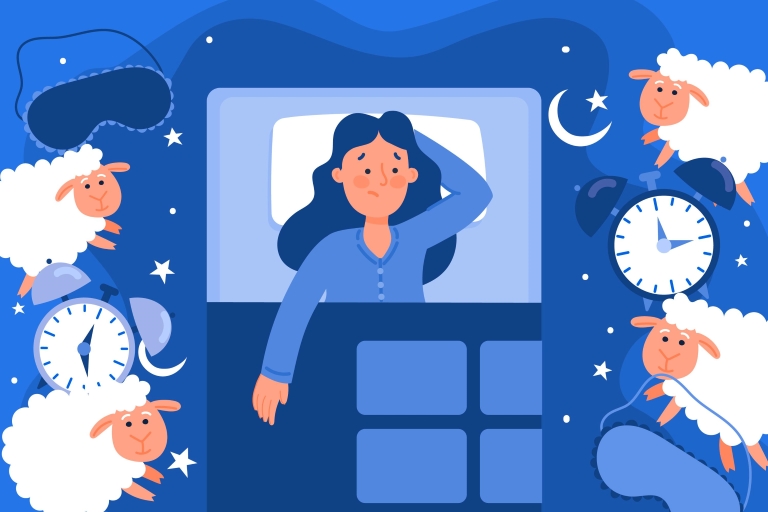Are you waking up to a storm of emotions every morning after a breakup? “Morning anxiety after breakup” resonates with the overwhelming feelings that accompany the dawn of a new day post-heartbreak. Let’s discover the reasons behind this early-morning emotional turbulence and learn practical coping strategies to help you fight through these challenging moments.
Why Morning Anxiety Strikes After a Breakup

Breakups are like a storm that sweeps through the night, leaving behind a chaotic aftermath. But why does the morning amplify these feelings of anxiety?
The Emotional Situation
Breakups trigger a surge of emotions, and when morning arrives, the mind has a way of amplifying these feelings. It’s like a tidal wave hitting you just as you open your eyes, catching you off guard and intensifying the emotional rollercoaster.
Loneliness Lingers in the Morning Light
The morning can be a stark reminder of the absence of a once-shared life. Loneliness creeps in as you confront a new day without the familiar companionship, magnifying the emotional void.
Subconscious Processing During Sleep
Your subconscious mind works overtime during sleep, processing the events and emotions of the breakup. As you wake, these thoughts and emotions rise to the surface, manifesting as morning anxiety. It’s like your mind’s way of sorting through the debris of heartache.
Transitioning to a New Reality
Mornings signify a transition from the solace of dreams to the harsh reality of the present. Coping with this transition can be challenging, causing heightened anxiety as you face the day without the comfort of the relationship.
I’ve been through those tough mornings after a breakup, and it feels like the weight of the world is on your shoulders. Don’t rush the healing process; it’s okay to let the emotions flow. Reach out to someone you trust; sharing the burden lightens the load. Remember, the sun rises again, and so will you. Stay strong.
Coping Strategies for Morning Anxiety

1. Acknowledge Your Feelings
First and foremost, allow yourself to feel. It’s okay to experience a range of emotions. Acknowledging your feelings is a crucial step in the healing process.
2. Establish a Morning Routine
Create a simple morning routine that brings you comfort. Whether it’s sipping a cup of tea, practicing mindfulness, or going for a short walk, a routine can provide stability and a sense of control.
3. Reach Out for Support
Connect with friends or family who can offer a listening ear. Sharing your thoughts and feelings can be cathartic, and having a support system is invaluable during challenging times.
4. Practice Mindfulness Techniques
Explore mindfulness and relaxation techniques to ground yourself in the present moment. Deep breathing exercises, meditation, or gentle yoga can help alleviate anxiety and promote a sense of calm.
5. Set Small, Achievable Goals
Break down your day into small, manageable goals. Celebrate your achievements, no matter how minor, and gradually build momentum towards larger milestones.
6. Consider Professional Guidance
If morning anxiety persists, seek professional support from a therapist or counselor. They can provide tailored strategies to address your specific challenges and guide you towards healing.
Impact on Daily Life and Well-Being

1. Disruption of Daily Routines
Morning anxiety can disrupt your usual routines, making it challenging to start the day with the same energy and focus. Acknowledge this disruption and consider adjusting your schedule to accommodate your emotional needs.
2. Strain on Concentration and Productivity
Anxiety can impair concentration and hinder productivity. Recognize that your mind may need extra care during this time, and be patient with yourself as you work through tasks and responsibilities.
3. Impact on Interpersonal Relationships
The effects of morning anxiety can extend to your relationships. Communicate openly with loved ones about your emotional state, helping them understand the challenges you’re facing and fostering a supportive environment.
4. Sleep Disturbances
Morning anxiety may contribute to sleep disturbances, making it difficult to get a restful night’s sleep. Establishing a calming bedtime routine and practicing relaxation techniques can aid in improving sleep quality.
5. Emotional Toll on Mental Well-Being
The emotional toll of morning anxiety can impact your overall mental well-being. Prioritize self-care, engage in activities that bring you joy, and consider professional support if needed.
6. Importance of Seeking Balance
Finding a balance between addressing morning anxiety and maintaining daily life is key. Experiment with coping strategies, seek support, and gradually integrate these practices into your routine for a more balanced well-being.
Community Support and Resources

1. Online Communities
Joining online communities where individuals share their experiences with morning anxiety can provide a sense of belonging. Engage in discussions, share your story, and gain insights from others who are on similar paths.
2. Supportive Friends and Family
Your friends and family can be pillars of strength during this challenging time. Share your feelings with them, and don’t hesitate to lean on their support when needed. Sometimes, a caring conversation can make a world of difference.
3. Professional Guidance
If morning anxiety persists, seeking professional guidance from a therapist or counselor can offer tailored support. They bring expertise in navigating emotional challenges and can provide strategies to help you cope.
4. Helplines and Hotlines
Explore helplines and hotlines that specialize in mental health support. Trained professionals are available to offer assistance, and sometimes a compassionate voice can provide comfort in moments of distress.
5. Educational Resources
Equip yourself with educational resources on coping with morning anxiety. Books, articles, and podcasts can offer valuable insights and practical tips that align with your journey towards healing.
6. Personal Growth Platforms
Consider exploring personal growth platforms that focus on holistic well-being. These platforms often provide resources on mindfulness, self-care, and emotional resilience, offering a comprehensive approach to healing.
